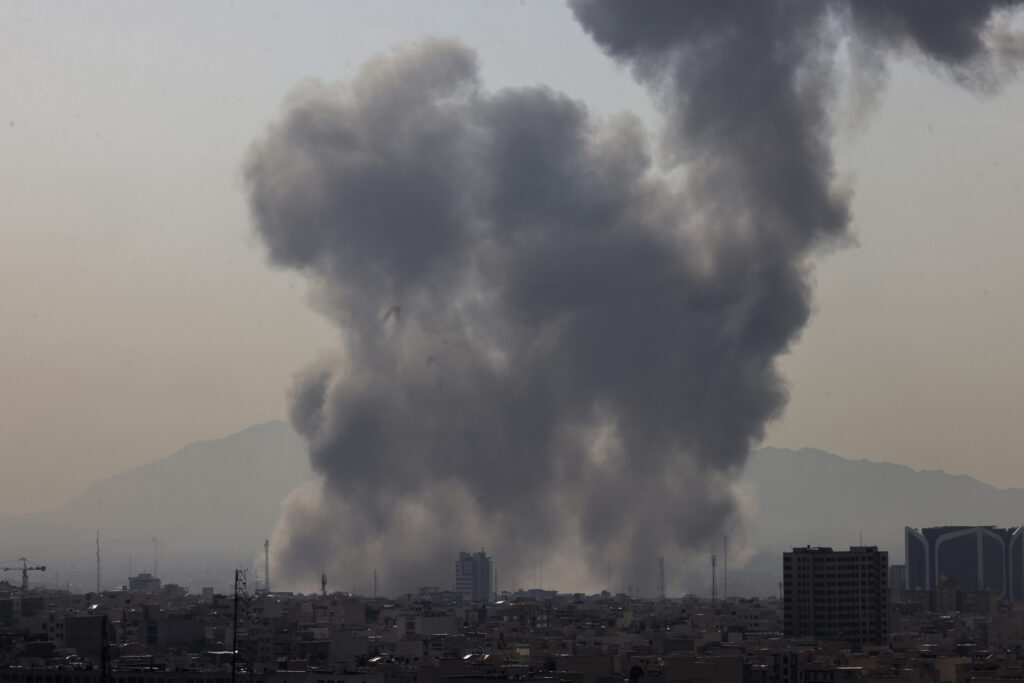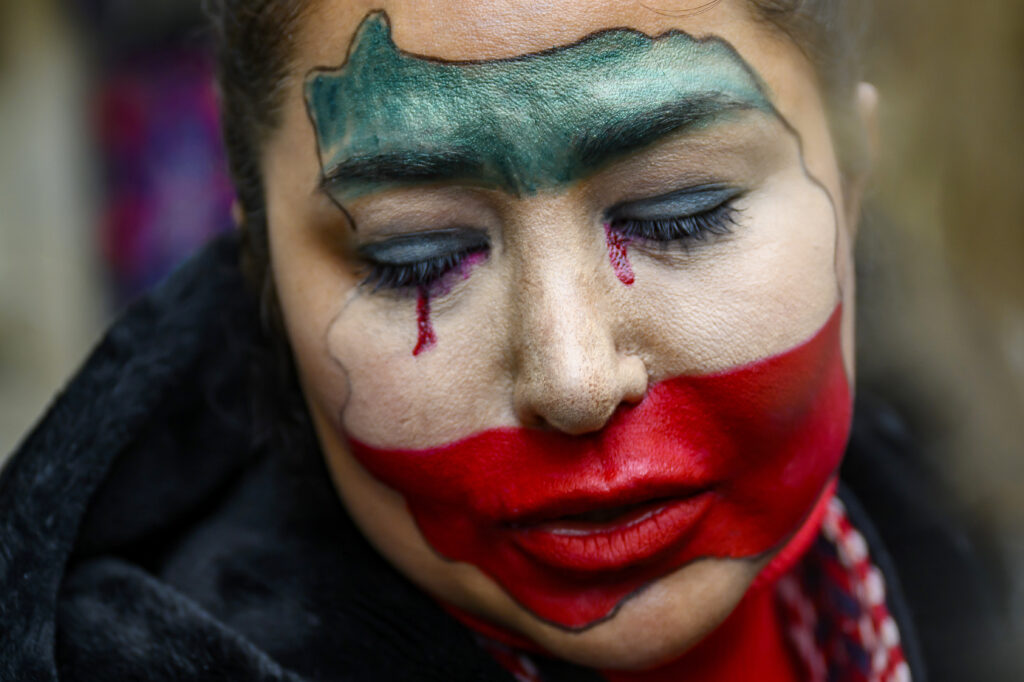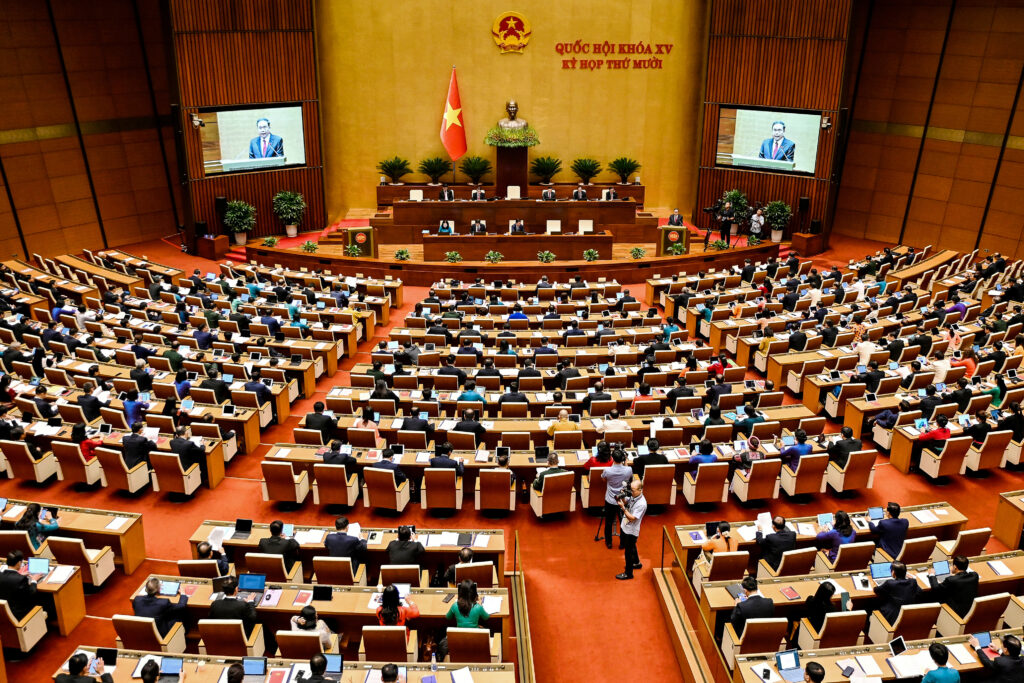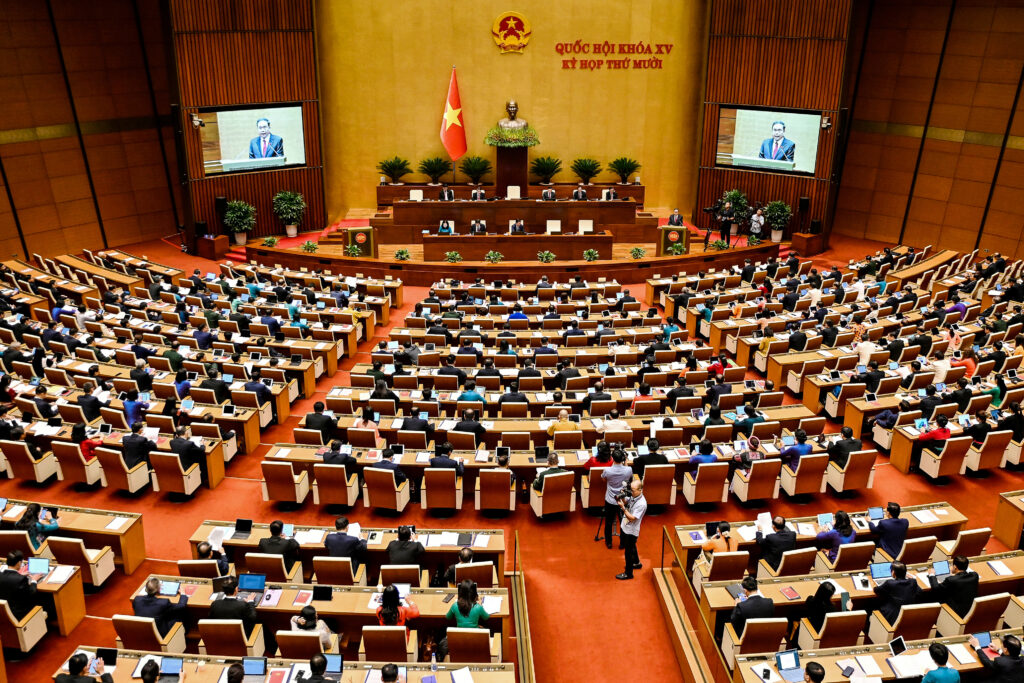Residents flee as Iran missiles stun peaceful Gulf cities
A barrage of Iranian strikes caused havoc across the Gulf on Saturday, shattering the aura of peace so highly prized by the oil-rich region’s wealthy rulers. Missiles streaked across clear desert skies as smoke plumed from US bases in Manama and Abu Dhabi and loud thuds shook high-rise windows in Dubai.In Qatar, dozens of people fled in panic as a falling missile plunged into a residential neighbourhood, erupting in a fireball as it hit the street.Flames and smoke erupted from a luxury hotel on Dubai’s Palm, the landmark, palm tree-shaped development of land reclaimed from the sea, after a loud bang sent passers-by scurrying for cover.And in Abu Dhabi, the United Arab Emirates’ capital, golfers enjoying a quiet round were stunned to see dozens of projectiles flying overhead. The Gulf monarchies have worked hard to stay on the periphery of Middle East conflict, relying on their stability to attract business, trade and tourism. The staunch US allies have carefully courted Iran, their powerful Shia neighbour. Saudi Arabia, a rival heavyweight, mended ties with Tehran after a seven-year rupture in 2023.Given their reputation for calm, Saturday’s sudden attacks on US military bases caused widespread shock among the Gulf’s diverse, expat-heavy populations. In Bahrain’s capital Manama, residents were hurriedly evacuated from the Juffair district housing the US navy’s Fifth Fleet, whose base was hit in the attack. “When we heard the sounds, we cried out of fear,” said Jana Hassan, a 15-year-old school student, who was visiting a friend in the area. “We didn’t know what to do… I will never forget the sound of those loud blasts.” In Dubai, the Middle East’s commercial hub with the world’s tallest building, the Burj Khalifa, residents looked up to see missiles surge through the sky.”It was a rumble and then a bang,” one resident told AFP, asking not to be named.- ‘Very scary and very loud’ -An American resident of Qatar’s capital Doha, who also asked not to be identified, heard two blasts as she was driving home, where she “heard several more and the glass was shaking”. She said she was “furious” about the instability, after 20 years of living in Qatar. Her teenage sons, she said, are “asking me if we will have to go back home”. Qatar was targeted twice last year, when Iran mounted a telegraphed attack on the Al Udeid US base in June and Israel struck a Hamas meeting in Doha in September. Those attacks were a Gulf rarity at the time. The UAE had not been troubled since a deadly assault by Yemen’s Houthi rebels in 2022, whose attacks on Saudi Arabia have also stopped in recent years.”As a Lebanese, I am traumatised,” a 31-year-old expat and mother of two living in Riyadh, the Saudi capital, told AFP. “We came to the Gulf because it’s known to be safer than Lebanon. Now I don’t know what to do or how to think really,” added the woman, who did not want to be named. Another Riyadh resident, from Jordan, said: “It was honestly very scary and very loud. “I was just walking out with my little boy when we suddenly heard the blast. People around us were looking up at the sky, trying to understand what was happening.”It’s not something you expect in Riyadh.”burs-th/ds/dcp
Residents flee as Iran missiles stun peaceful Gulf cities
A barrage of Iranian strikes caused havoc across the Gulf on Saturday, shattering the aura of peace so highly prized by the oil-rich region’s wealthy rulers. Missiles streaked across clear desert skies as smoke plumed from US bases in Manama and Abu Dhabi and loud thuds shook high-rise windows in Dubai.In Qatar, dozens of people fled in panic as a falling missile plunged into a residential neighbourhood, erupting in a fireball as it hit the street.Flames and smoke erupted from a luxury hotel on Dubai’s Palm, the landmark, palm tree-shaped development of land reclaimed from the sea, after a loud bang sent passers-by scurrying for cover.And in Abu Dhabi, the United Arab Emirates’ capital, golfers enjoying a quiet round were stunned to see dozens of projectiles flying overhead. The Gulf monarchies have worked hard to stay on the periphery of Middle East conflict, relying on their stability to attract business, trade and tourism. The staunch US allies have carefully courted Iran, their powerful Shia neighbour. Saudi Arabia, a rival heavyweight, mended ties with Tehran after a seven-year rupture in 2023.Given their reputation for calm, Saturday’s sudden attacks on US military bases caused widespread shock among the Gulf’s diverse, expat-heavy populations. In Bahrain’s capital Manama, residents were hurriedly evacuated from the Juffair district housing the US navy’s Fifth Fleet, whose base was hit in the attack. “When we heard the sounds, we cried out of fear,” said Jana Hassan, a 15-year-old school student, who was visiting a friend in the area. “We didn’t know what to do… I will never forget the sound of those loud blasts.” In Dubai, the Middle East’s commercial hub with the world’s tallest building, the Burj Khalifa, residents looked up to see missiles surge through the sky.”It was a rumble and then a bang,” one resident told AFP, asking not to be named.- ‘Very scary and very loud’ -An American resident of Qatar’s capital Doha, who also asked not to be identified, heard two blasts as she was driving home, where she “heard several more and the glass was shaking”. She said she was “furious” about the instability, after 20 years of living in Qatar. Her teenage sons, she said, are “asking me if we will have to go back home”. Qatar was targeted twice last year, when Iran mounted a telegraphed attack on the Al Udeid US base in June and Israel struck a Hamas meeting in Doha in September. Those attacks were a Gulf rarity at the time. The UAE had not been troubled since a deadly assault by Yemen’s Houthi rebels in 2022, whose attacks on Saudi Arabia have also stopped in recent years.”As a Lebanese, I am traumatised,” a 31-year-old expat and mother of two living in Riyadh, the Saudi capital, told AFP. “We came to the Gulf because it’s known to be safer than Lebanon. Now I don’t know what to do or how to think really,” added the woman, who did not want to be named. Another Riyadh resident, from Jordan, said: “It was honestly very scary and very loud. “I was just walking out with my little boy when we suddenly heard the blast. People around us were looking up at the sky, trying to understand what was happening.”It’s not something you expect in Riyadh.”burs-th/ds/dcp
Could the US-Israel war on Iran drag on?
The US-Israeli strikes launched on Iran Saturday could become an extended operation, with strategic goals both multiple and complex — aiming to decapitate the Islamic republic and eviscerate its security capabilities.In the 12-day war in June last year, the Israelis, backed by the Americans, carried out targeted strikes aimed at destroying key Iranian nuclear sites.This time “we are embarking on an operation that is unfolding on a completely different scale, more complex and more complicated” than in June, Israel’s army chief Lieutenant General Eyal Zamir warned.Iran’s Foreign Minister Abbas Araghchi said US and Israeli installations involved in the operation were “legitimate targets” — before Iran’s state televison announced a new wave of missiles had been fired at US bases in the Gulf.”We are in a large-scale military campaign that, in my opinion, is going to last several days, or even several weeks,” said David Khalfa, co-founder of the Atlantic Middle East Forum research centre.- ‘Existential’ phase -He described the attacks as a “multi-domain offensive” aimed “both at disrupting the regime’s chain of command, shaking the repressive apparatus at its foundations, and provoking at the very least an internal transition, if not outright regime change”.The joint US-Israeli strikes targeted Iran’s Supreme Leader Ali Khamenei — still alive, according to Tehran — as well as the chief of staff and head of the Revolutionary Guards, the regime’s ideological army.On top of that, there have been strikes on Iran’s ballistic missile programme.”This is an all-out decapitation campaign and an effort to wear down Iran’s capabilities,” Khalfa told AFP.”It is a direct blow to the state’s security architecture and governing apparatus,” said Sanam Vakil, director of the Middle East and North Africa programme at British think tank Chatham House.”This new stage of conflict is existential and clearly about regime survival. It is also unlikely to end quickly.”Araghchi appeared to be dampening down an escalation by announcing on US television that he had explained to Gulf capitals that Tehran had “no intention of attacking them” but was targeting US bases on their soil “as an act of self-defence”.Although there is currently no communication with Washington, “if the Americans want to talk to us, they know how they can contact me,” the Iranian minister said, adding he was “clearly interested in de-escalation”.- Potential conflagration -According to Khalfa however, the Iranians are already “in horizontal escalation”.At a moment when the regime’s survival is at stake, “they are prepared to regionalise the conflict by targeting American bases in the Arabian-Persian Gulf and by striking Israel as well”, he argued.The danger is that Arab countries “might decide to allow the Americans to launch strikes from their bases, or even join the fray themselves because they consider that the Iranian regime has crossed red lines by attacking them on a massive scale,” said Khalfa.At the same time, Iran’s proxies could also push for a regional escalation that would prolong the conflict.Lebanon’s Hezbollah has already called on Saturday for “the states and peoples of the region” to oppose the “aggression” on Iran.Washington itself “risks being drawn into a new conflict in the Middle East with no clear way out”, said Brandan Buck, a researcher at the Washington-based Cato Institute.President Donald Trump “is repeating the same pattern of strategic self-delusion that trapped his predecessors, promising limited action while paving the way for a protracted conflict”, he said.
Could the US-Israel war on Iran drag on?
The US-Israeli strikes launched on Iran Saturday could become an extended operation, with strategic goals both multiple and complex — aiming to decapitate the Islamic republic and eviscerate its security capabilities.In the 12-day war in June last year, the Israelis, backed by the Americans, carried out targeted strikes aimed at destroying key Iranian nuclear sites.This time “we are embarking on an operation that is unfolding on a completely different scale, more complex and more complicated” than in June, Israel’s army chief Lieutenant General Eyal Zamir warned.Iran’s Foreign Minister Abbas Araghchi said US and Israeli installations involved in the operation were “legitimate targets” — before Iran’s state televison announced a new wave of missiles had been fired at US bases in the Gulf.”We are in a large-scale military campaign that, in my opinion, is going to last several days, or even several weeks,” said David Khalfa, co-founder of the Atlantic Middle East Forum research centre.- ‘Existential’ phase -He described the attacks as a “multi-domain offensive” aimed “both at disrupting the regime’s chain of command, shaking the repressive apparatus at its foundations, and provoking at the very least an internal transition, if not outright regime change”.The joint US-Israeli strikes targeted Iran’s Supreme Leader Ali Khamenei — still alive, according to Tehran — as well as the chief of staff and head of the Revolutionary Guards, the regime’s ideological army.On top of that, there have been strikes on Iran’s ballistic missile programme.”This is an all-out decapitation campaign and an effort to wear down Iran’s capabilities,” Khalfa told AFP.”It is a direct blow to the state’s security architecture and governing apparatus,” said Sanam Vakil, director of the Middle East and North Africa programme at British think tank Chatham House.”This new stage of conflict is existential and clearly about regime survival. It is also unlikely to end quickly.”Araghchi appeared to be dampening down an escalation by announcing on US television that he had explained to Gulf capitals that Tehran had “no intention of attacking them” but was targeting US bases on their soil “as an act of self-defence”.Although there is currently no communication with Washington, “if the Americans want to talk to us, they know how they can contact me,” the Iranian minister said, adding he was “clearly interested in de-escalation”.- Potential conflagration -According to Khalfa however, the Iranians are already “in horizontal escalation”.At a moment when the regime’s survival is at stake, “they are prepared to regionalise the conflict by targeting American bases in the Arabian-Persian Gulf and by striking Israel as well”, he argued.The danger is that Arab countries “might decide to allow the Americans to launch strikes from their bases, or even join the fray themselves because they consider that the Iranian regime has crossed red lines by attacking them on a massive scale,” said Khalfa.At the same time, Iran’s proxies could also push for a regional escalation that would prolong the conflict.Lebanon’s Hezbollah has already called on Saturday for “the states and peoples of the region” to oppose the “aggression” on Iran.Washington itself “risks being drawn into a new conflict in the Middle East with no clear way out”, said Brandan Buck, a researcher at the Washington-based Cato Institute.President Donald Trump “is repeating the same pattern of strategic self-delusion that trapped his predecessors, promising limited action while paving the way for a protracted conflict”, he said.
Iranians abroad jittery but jubilant at US, Israeli strikes
“War is no good but it’s better than the regime killing our children,” said a 39-year-old Iranian in Istanbul, saying he was “happy” US and Israeli warplanes were attacking Iran. Like many Iranians exiled to neighbouring Turkey, Reza, who did not want to give his surname, has been glued to his phone since news broke that Israel and the United States had begun air strikes on Iran. Despite worrying about their families, most exiles in Turkey’s largest city told AFP they were happy with the strikes, which US President Donald Trump had threatened in January over Iran’s protest crackdown that left thousands dead.”America is attacking the military bases, the people who 40 days ago were killing our children, so they are helping us. This war is no good, people will die, but I’m happy,” Reza, a mature student, told AFP.Ali, a film director who like almost all the Iranians interviewed by AFP did not give his surname, agreed.”Now people in Iran are full of hope and they are very, very happy,” Ali said. “Iranians have been counting the minutes until America came to destroy the regime.”Over the past few weeks, Trump has sent warships and dozens of fighter planes to the Middle East, raising fears of a US strike — even as US and Iranians diplomats held indirect talks on Iran’s nuclear programme. But early on Saturday, the tensions came to a head as Israeli and US warplanes began hitting targets in Iran, with Trump urging Iranians to stand up to their government and telling them: “The hour of your freedom is at hand.”Turkey, which shares a 500-kilometre (300-mile) border with Iran, currently hosts more than 74,000 Iranians with residence permits and some 5,000 refugees.While the unrest has raised fears of an influx of people, there have been no reports of unusual activity at the Turkey-Iran border so far. – ‘Difficult days ahead’ -“I’m both worried and happy, hoping for Iran’s freedom,” said Sepideh, a former teacher, who told AFP she managed to speak to a few friends in the morning, despite Iran cutting off all internet access.Even with the internet shutdown, Mehdi, an engineer from the northern Iranian city of Tabriz, said he had managed to reach his family on Friday night. “Everyone was aware of the possibility of war, so they have been saving fuel and storing enough food. They are planning to move to rural areas,” he said.”We never wanted war in our country. It is the mullahs’ brutal theocracy that has put us in this situation,” he said. “We don’t support Trump or Israel either, we want freedom and democracy, but this will not come easily. There will be very difficult days ahead, but Iran will get through this period. We will survive.”Some are hoping the strikes will bring people back on the streets in another show of mass protest that could ultimately bring down Iran’s authoritarian government. “People are full of anger — many thousands of people died in the protests and they are waiting like a wolf for an opportunity for revenge. This is their best chance,” said Reza. Others are already looking to a future when the country will begin a transition to democracy — with some putting their hopes in Reza Pahlavi, the exiled eldest son of Iran’s last shah, who rose to prominence during the recent protests. “Every Iranian is ready: as soon as Prince Reza Pahlavi gives the order that we can return, we won’t stay away a minute longer,” said Amir Hossein, a singer from Tehran. “We will all come back to build a magnificent Iran.”- European diaspora -Members of the diaspora across Europe came together to express solidarity with their people.Around 20 people demonstrated outside the Iranian embassy in Brussels, with some holding Iran’s pre-Islamic revolution flag — now a symbol of opposition to the current leadership.In London, some 300 people gathered with US flags outside the prime minister’s residence and offices, with more joining the march as it moved toward the Iranian embassy, an AFP reporter observed.Bita, a member of the Stage of Freedom group that organised the protest, hailed an “incredibly positive” mood inside Iran.”The people of Iran have been willing this, have been calling for this… ultimately they will bring about the regime change they want that will benefit not only Iran, not only the Middle East, but the West,” Bita said.A small anti-war protest was meanwhile attended by a few dozen people, who shouted “Hands off Iran” and “Stop killing children”.In Berlin, a rally in front of the Iranian embassy denounced both the government and the Shah’s son, calling for “Neither monarchy nor the mullahs’ dictatorship” but “democracy, equality”.
Pakistan ‘have underperformed’ says Agha after T20 World Cup exit
A disappointed Salman Agha said his team had “underperformed” after they exited the T20 World Cup on Saturday, but held back from making an “emotional” decision on his future as Pakistan captain.Pakistan were knocked out on net run rate despite beating Sri Lanka in their final Super Eights match in Kandy on Saturday.”We have underperformed in the whole tournament,” Agha told reporters.”We are out of the semis due to our failure in decision-making in pressure situations.”Opener Sahibzada Farhan became the only player to score two hundreds in the same T20 World Cup as Pakistan posted 212-8.But they failed to restrict Sri Lanka to 147 and New Zealand went through to the semi-finals.”Farhan was outstanding in the tournament but none of the other batters could come up to expectations,” said Agha, who only managed 60 runs in seven tournament matches.Sri Lankan skipper Dasun Shanaka hit 76 not out off 31 balls with eight sixes as Sri Lanka scored 207-6 to lose by five runs.A rained-off Super Eights opener against New Zealand and a defeat to England left Pakistan needing to beat Sri Lanka by a massive margin to advance.”(Head coach Mike) Hesson and I take the responsibility as we selected the eleven for the matches,” said Agha, who added he would not make an immediate call on whether to stand down as captain.”I will go back and take some time to decide,” he said. “Because at this point of time stepping down would be an emotional decision.”
Vietnam AI law takes effect, first in Southeast Asia
A law regulating artificial intelligence went into effect in Vietnam on Sunday, making it the first country in Southeast Asia with a comprehensive framework on the booming technology.Passed by the National Assembly in December, the law focuses on the risks posed by generative AI, requiring human oversight and control along the lines of the European Union’s landmark AI Act.Many nations are moving to address the dangers of chatbots and image generators — from misinformation to online abuse and copyright violations — but few have enacted legislation.The legislation, which is in force as of March 1, “paves the way for Vietnam to deeply integrate with international standards while maintaining digital sovereignty”, the government said in a December report.It requires companies to clearly label AI-generated content such as deepfakes that cannot readily be differentiated from reality.It also requires them to disclose to customers when they are interacting with an artificial rather than human agent.The law applies to developers as well as providers and deployers of the technology, whether they are Vietnamese organisations or foreign entities operating in the country.Vietnam has set ambitious double-digit growth targets for the next five years, with expansion of the digital economy a key part of its development strategy.AI and the data economy are “pillars” of a “more sustainable and smarter new development” model, Prime Minister Pham Minh Chinh was quoted as saying Wednesday on the government’s website.Under the law, the government will establish a national AI computing centre, improved data resources and large language models in Vietnamese.- ‘Not the final word’ -So far only a handful of countries have implemented far-reaching regulatory frameworks on AI.The United States has opposed what Vice President JD Vance called “excessive regulation”, warning it could stifle innovation in the key sector.In January, South Korea became the first country to have an AI law take full effect, while the European Union is gradually phasing in a set of rules that will become completely applicable in 2027.While Vietnam’s law is a regulatory milestone, analysts said its impact would depend on how the government enforces it and on what guidance it issues on implementation.The law is “not the final word” but rather a “decisive starting point”, Vietnam-based LNT & Partners law firm said in an analysis on its website.”It establishes responsibility, human control, and risk management as the governing themes of AI regulation,” the firm said.However, it added, “the true impact will depend on implementing decrees, sectoral regulations, and enforcement practice”.Patrick Keil, senior legal adviser at law firm DFDL, called the law “a significant statement of national ambition” but told AFP businesses will continue to face some uncertainty about their obligations until the government issues further guidance.At an AI summit hosted by New Delhi in February, 91 countries and international organisations called for “secure, trustworthy and robust” AI.But their declaration, signed by the United States and China, was criticised by AI safety campaigners for being too generic to protect the public.
Vietnam AI law takes effect, first in Southeast Asia
A law regulating artificial intelligence went into effect in Vietnam on Sunday, making it the first country in Southeast Asia with a comprehensive framework on the booming technology.Passed by the National Assembly in December, the law focuses on the risks posed by generative AI, requiring human oversight and control along the lines of the European …
Vietnam AI law takes effect, first in Southeast Asia Read More »






